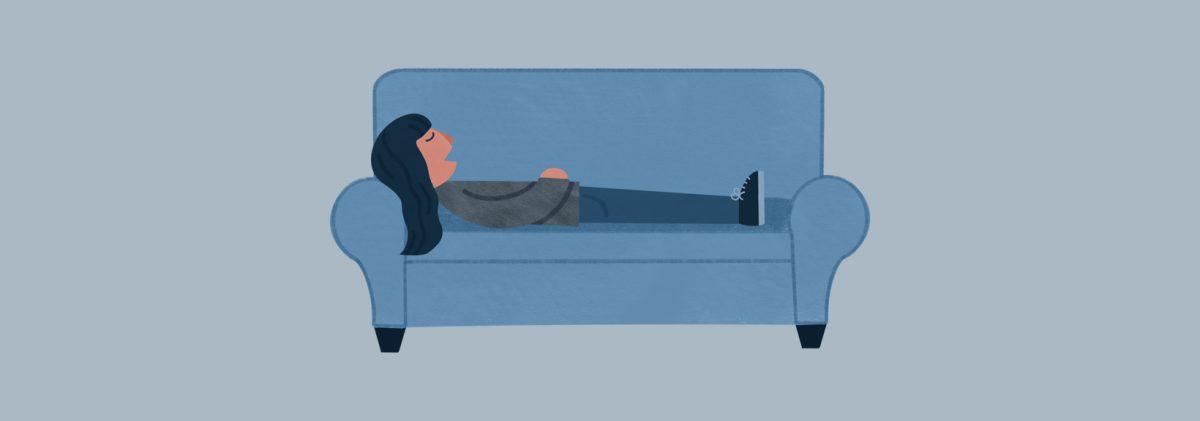Mental health is one of the main struggles college students face. With overwhelming amounts of classwork, family affairs, social anxieties and peer pressure, it’s no wonder young adults need cognitive behavior therapy. While MU offers therapy services on campus, it’s the long-term needs that create a problem.
According to A National Alliance on Mental Illness survey, “73% of students experience some sort of mental health crisis during college.” Of that 73%, one-third reported they “[felt] so depressed they had trouble functioning.” With the majority of college students experiencing mental health issues, creating a positive environment for students to seek counseling is essential.
The MU Counseling Center offers therapy specifically for short-term solutions. While most students need specialized therapy, this therapy is non-specialized which means it does not adhere to patients’ individual needs. Most of these students need to work out deep childhood and early adolescent trauma, which cannot be solved in a maximum of 10 sessions offered. Not only is the small number of sessions a problem, but there is also the lack of direction after students have reached their maximum number of sessions.
MU psychiatrists should also provide patients with long-term solutions. If therapy is offered on campus, there should not be a limit to the number of sessions one person can have. Whether it’s three or 10, having a limited number of sessions for students can worsen anxieties. If students know they only have a certain number of sessions, the pressure of sharing everything in a short amount of time can be overwhelming. Additionally, after these limited sessions, therapists put minimal effort into ensuring every student finds a long-term therapist. It’s the Counseling Center’s job to relieve students’ anxieties, not make them worse. Finding a long-term therapist shouldn’t create additional stress for students in desperate situations.
Cognitive behavior therapy takes time; the root of someone’s obstacles won’t appear after a handful of sessions. I see a therapist in Kansas City, and I meet with her on Zoom when I’m at school. While this is not ideal, it’s still better than nothing. I’ve been seeing her for almost two years, and, just recently, I have really started seeing results in my mental health. Students cannot air out all their anxieties in just a few sessions. It takes a while to warm up to the therapist — and, sometimes, conversations involve problems patients are unaware of.
Another issue with therapy on campus is group sessions. While, for some, sharing in a group may be beneficial, everyone has different levels of anxieties and traumas. Having multiple people in the same group who are on different anxiety levels can create a stressful environment for those with high amounts of social anxiety. Additionally, these group therapy sessions should be specialized to each person’s struggles, whether that’s anxiety, depression or Obsessive-Compulsive Disorder (OCD). I have never done group therapy, but I know I wouldn’t want to share all of my trauma with a group of people I have never met.
While I have never tried to use on-campus counseling, some of my very close friends have experienced these exact issues. Another struggle students face while attempting to begin on-campus therapy includes the never-ending waiting list. Some students never get the chance to begin counseling because they are placed on the waiting list. While it’s understandable to have a long waiting list, if over 30,000 students attend MU, then 21,9000 theoretically have experienced or will experience some sort of mental health crisis. The issue is with the lack of determination to get students off the list. No one knows an individual’s case until they share it, and some students could be in desperate need of counseling. Having suspended wait times for students in crisis is less than ideal.
Students should not be placed on a waiting list for months at a time to never receive an update or have the opportunity to speak with a professional. MU Counseling needs to work toward creating a better environment for its patients. Psychiatrists have to either extend the number of sessions offered for students or really help them find a better long-term solution.
The overall mental health of the student body will never improve unless significant changes are made in the counseling center. Specialized sessions and post-MU counseling solutions must be offered for students to see long-term results. The university must create a more comfortable environment for students seeking mental health assistance.
If you are interested in ending stigma and discrimination surrounding mental illness, consider donating to Bring Change to Mind.












